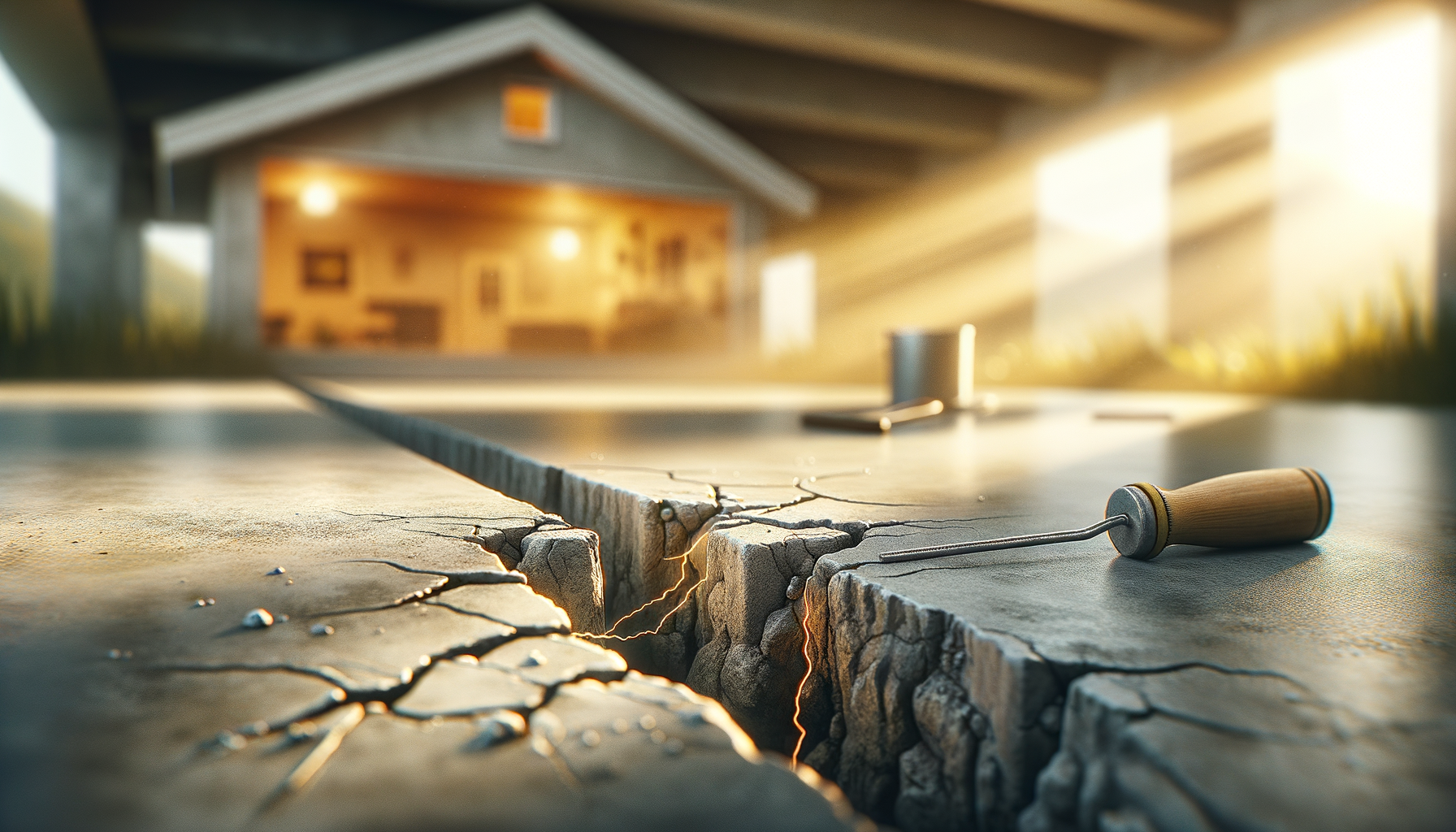What is a Slab Foundation?
A slab foundation is a flat layer of concrete that a house sits on. Builders usually use concrete, steel bars, and sometimes special cables to make it sturdy.
Benefits of Slab Foundation:
- Cheaper compared to other types of foundations.
- Quick and easy to build.
- Provides a solid base to help prevent termite issues.
Signs Your Slab Foundation Needs Repair
- Cracks in your walls or floors: This can mean the foundation is moving or settling.
- Uneven or sunken floors: If parts of your floor are lower than others, the foundation might be sinking.
- Sticking doors and windows: When the foundation moves, doors and windows can get misaligned and not close properly.
- Gaps between walls and ceilings/floors: Large gaps can appear if the foundation shifts a lot.
- Water pooling around the foundation: Poor drainage can damage the foundation over time.
Factors that Affect Slab Foundation Repair Costs
- Extent of damage: Small cracks cost less to fix than big structural issues.
- Type of repair needed: Different repair methods have different costs.
- Accessibility of the repair site: Hard-to-reach places might need extra work and cost more.
- Geographic location: Prices for labor and materials vary in different places.
- Size and thickness of the slab: Bigger, thicker slabs need more materials and labor.
- Required permits and inspections: Getting permits and inspections can add to the cost.
Common Slab Foundation Repair Methods
Slabjacking (Mudjacking)
- Overview: This involves pumping a mix under the slab to lift it back into place.
- Cost Range: Usually between $500 and $1,300 depending on how much lifting is needed.
Piering
- Overview: Steel or concrete piers are driven into the ground to stabilize and lift the foundation.
- Cost Range: Typically from $1,000 to $3,000 per pier, with several piers often needed.
Epoxy Injection
- Overview: Epoxy is injected into cracks to seal them and strengthen the foundation.
- Cost Range: Usually between $150 and $650 per crack based on its size and severity.
How to Get an Accurate Repair Estimate
- Professional Inspection: A qualified inspector can accurately assess the damage.
- Choosing a Reliable Contractor:
- Checking credentials and experience: Make sure the contractor is licensed and experienced.
- Reading reviews and testimonials: Look for feedback from past customers.
- Comparing multiple quotes: Get several estimates to find the best deal.
- Questions to Ask the Contractor:
- What repair methods do you use?
- How long will the repair take?
- Do you offer warranties or guarantees on your work?
Ways to Save on Slab Foundation Repair Costs
- Regular Maintenance: Keep gutters clean and ensure proper drainage around your home.
- Addressing Minor Issues Promptly: Fix small cracks and leaks right away to stop bigger problems.
- Financing Options and Insurance Coverage: Look into home equity loans, credit lines, or insurance policies that might cover repairs.
- Local Programs or Grants: Some places offer financial help for home repairs.
DIY vs. Professional Repair: Pros and Cons
- DIY Repairs: You might be able to fix small cracks yourself.
- Risks of DIY: If done incorrectly, DIY repairs can cause more damage and higher costs later.
- Hiring a Professional: Professionals have the right tools and experience to do the job right.
Key Takeaways
- Timely Repairs: Fix foundation issues as soon as you notice them to prevent further damage.
- Cost Factors: Know what can affect the cost of repairs.
- Fair Repair Costs: Get professional inspections, choose reliable contractors, and find ways to save money.
By understanding these points, you can better handle slab foundation repairs and make smart choices for your home.
Keywords: slab foundation repair cost, signs your slab foundation needs repair, slabjacking cost, piering cost, epoxy injection for slab foundation.


Leave a Reply